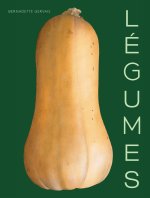
Dostawa
Doradca ds. zakupów





Jednak się nie przyda? Nic nie szkodzi! U nas możesz zwrócić towar do 30 dni
 Bon prezentowy
O dowolnej wartości
Bon prezentowy
O dowolnej wartości
Bon prezentowy to zawsze dobry pomysł. Obdarowany może za bon prezentowy wybrać cokolwiek z naszej oferty.
Thinking Fascism
 Angielski
Angielski
 286 b
286 b
 common.delivery_to
common.delivery_to
30 dni na zwrot towaru
Mogłoby Cię także zainteresować


This volume analyzes three works by women writers, Djuna Barnes' "Nightwood"( 1936), Marguerite Yourcenar's "Denier Dureve" (1934), and Virginia Woolf's "Three Guineas" (1938) that engage, directly or indirectly, with fascist politics and ideology. Through these analyses, the author explores the conjunction between fascism and other forms of modernity, and refines the discussion about the relationship between women intellectuals and the various aesthetic and ideological practices collected under the names of modernism and facism. Until recently, much theoretical work on fascism has represented fascist thought as radically different from and inimical to non-fascist thought, and feminist criticism has further assumed that women intellectuals especially the sexually marginal women sometimes grouped as the Sapphic Modernists were necessarily antagonistic to fascist ideologies. In contrast, the author argues that Western intellectuals of both genders and all political persuasions were preoccupied in the 1930 s with the commodification of culture and sexuality, the erasure of liberal bourgeois concepts of the individual and the work of art in mass society, and the failure of social institutions to provide transcendence and immediacy in the face of these transformations. By demonstrating that women writers like the Sapphic Modernists and conservative or fascist male modernists often articulated very similar conceptions of these problems, this book suggests that fascism cannot be posed as the absolute other of non- or even anti-fascist politico-cultural discourses in the interwar period.
Informacje o książce
 Angielski
Angielski
Kategoria




 Jak kupować
Jak kupować

























